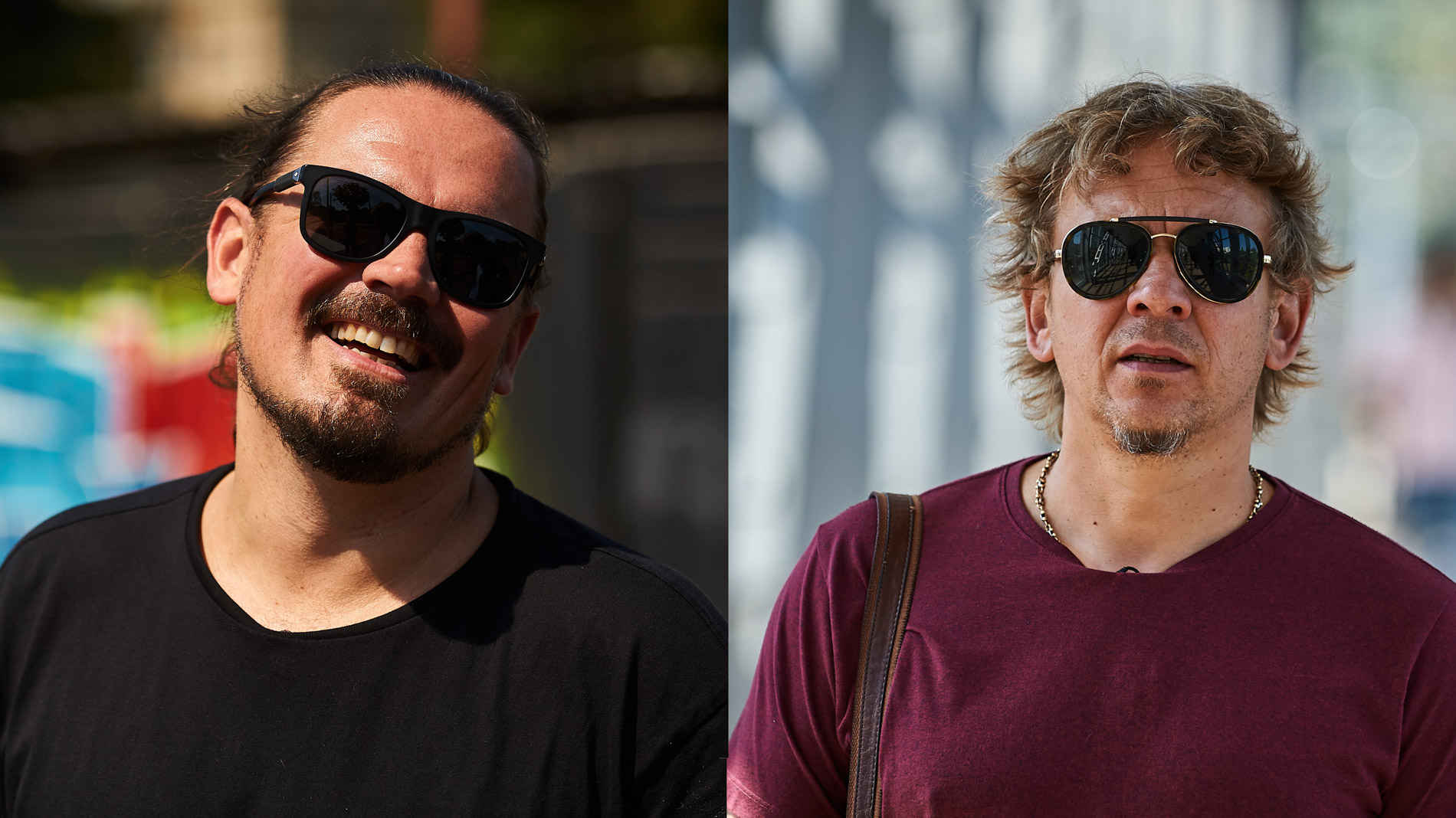The best way to explore Ukraine, in all its diversity, is with people whose stories are tightly bound up with a particular place. In our fourth story, the musicians Oleh Mykhailiuta, a.k.a. Fahot (‘Bassoon’ – tr.), and Oleksandr Sydorenko, a.k.a. Fozzy, will introduce to us their home city, Kharkiv. Together, they front the band Tanok na Maidani Kongo (‘Dance on the Congo Square’) and are among the most charismatic ambassadors of their city. Bogdan Logvynenko, founder of the Ukraїner project, caught up with them on a tour around Kharkiv, to see how the city has transformed over the years.
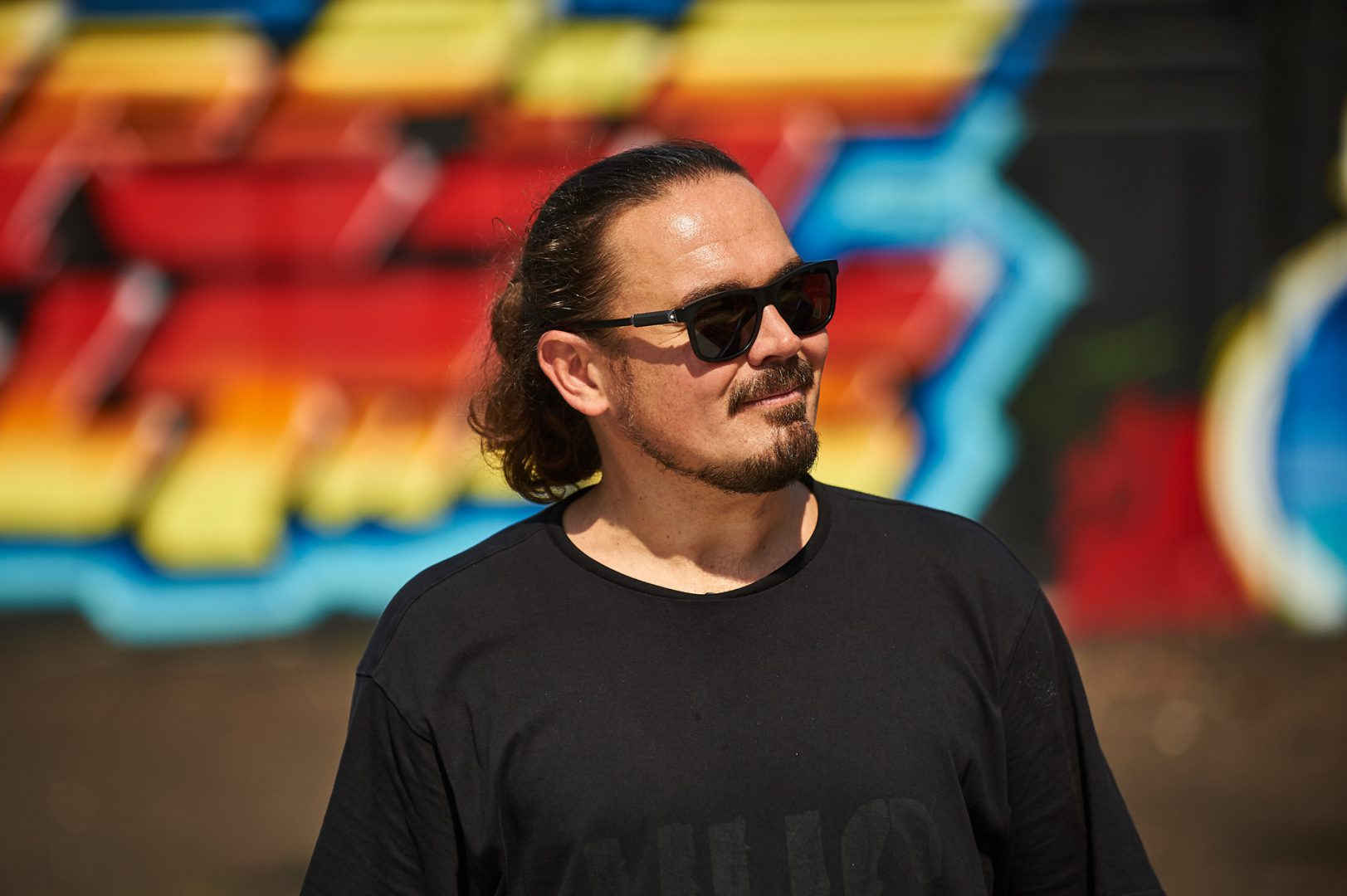
Fahot (‘Bassoon’)
— What was your childhood in Kharkiv like?
— I spent my whole childhood at the crossroads near my school, from the age of 7 onwards. We used to joke that you could spend all your life at that crossroads, without going anywhere. I was born here, went to school here, went to the theatre once in a while, listened to music, sang, thought, and went wild. If you need some privacy there’s a hotel, or if you want, you can get drunk and die. What else do you need from life?
— Did you go to performances at the Theatre of Musical Comedy?
— Over the 11 years that I lived here, it was open for less than two years, maybe three. They had amazing staging, and I watched Juno and Avos (popular Russian-language rock opera — ed.) here. I don’t remember the whole opera, I was too young back then. But I remember that it totally rocked. The music was absolutely genius. Total bliss! It’s such a vivid memory from my childhood.
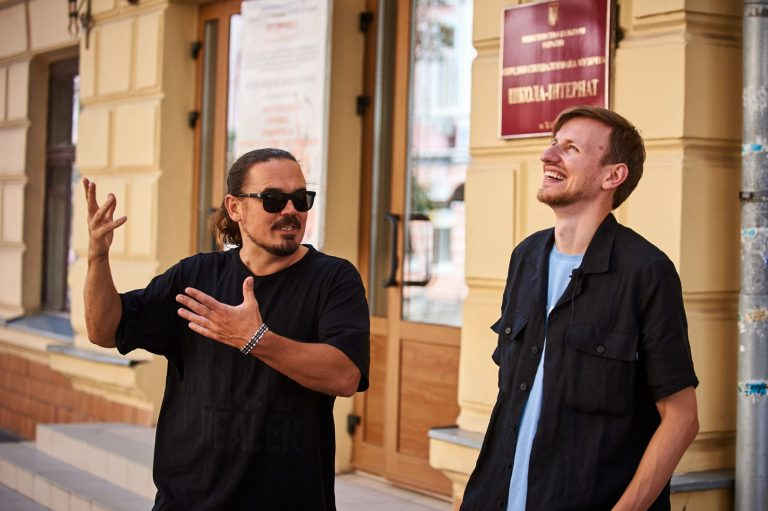
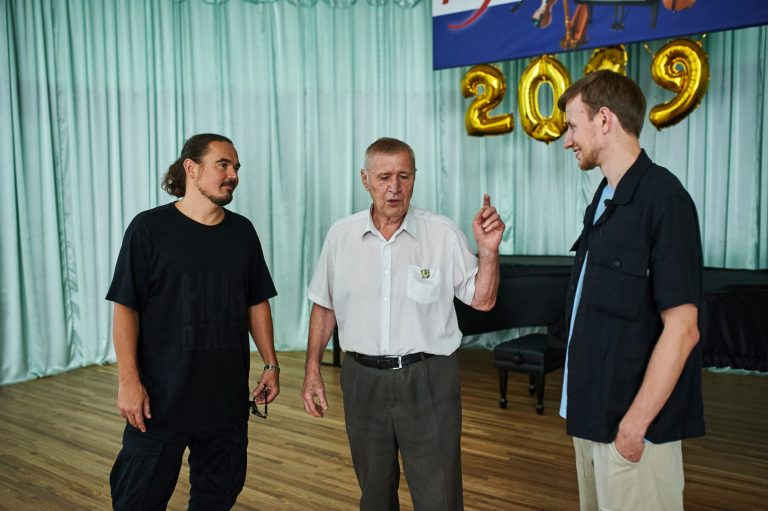
slideshow
— When was the last time you visited your boarding school?
— My Alma Mater, my beloved school, where I studied and lived for 11 years. I haven’t been home for ages. Every time I come to Kharkiv, I sail right past it and don’t slow down.
— What is Kharkiv for you?
— To be honest, I don’t really know. Because this city is pretty complicated and unpredictable. It’s become more attractive visually. They don’t always manage to preserve what’s genuine, but it’s an eternal issue – whether to preserve the old stuff, cherish it, treat it as part of your history and your roots, or to demolish it and build something new and sophisticated. It’s a constant struggle. But the truth is somewhere in the middle.
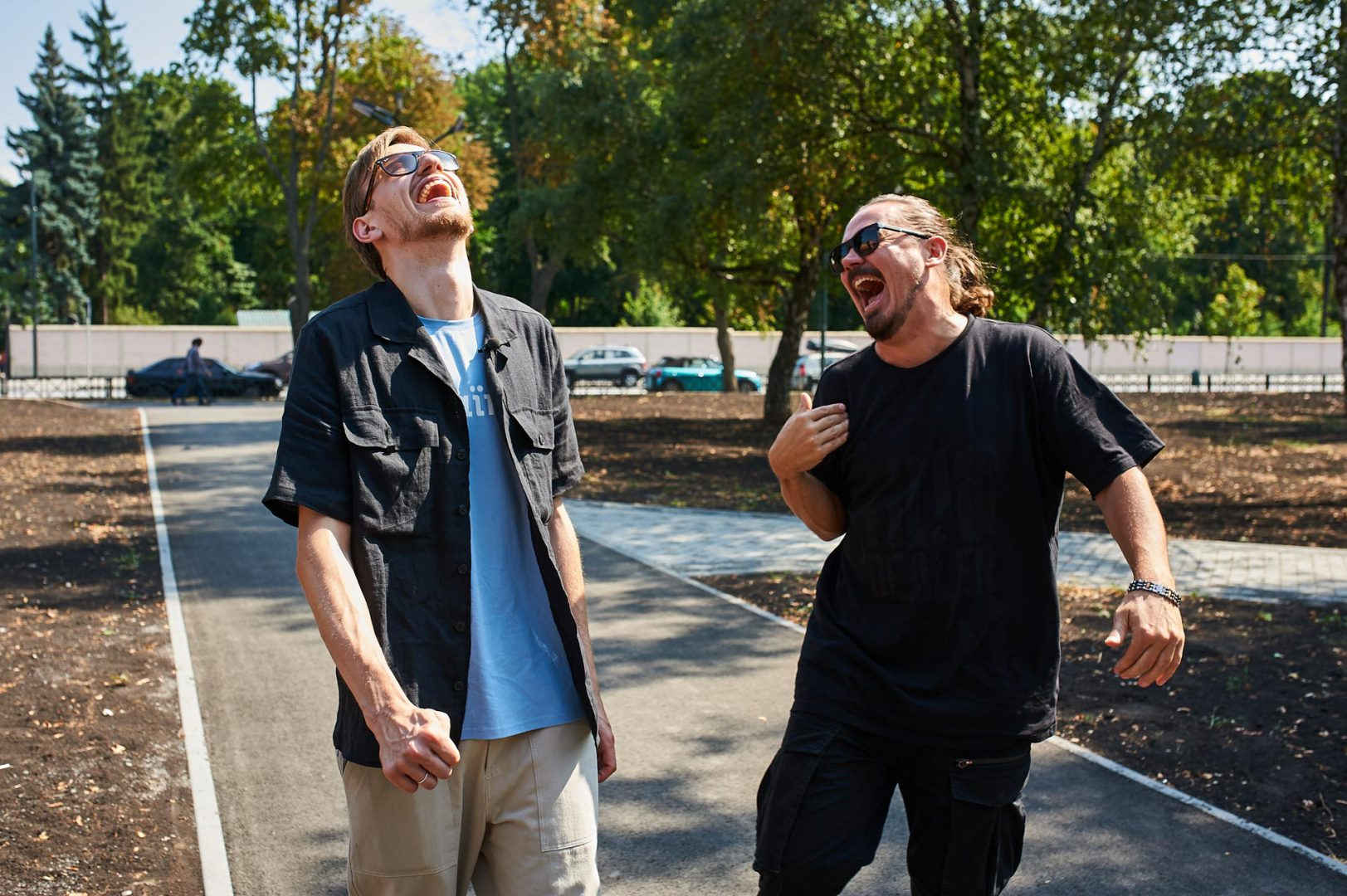
— Do you like Kharkiv the way it looks nowadays?
— None of these buildings were around in my childhood. You see, they’ve changed a lot of things in Kharkiv. The parks are totally accessible for people, and that’s great. You might have a lot of other complaints to the city authorities, but this is absolutely watertight, and it all looks beautiful.
— What was the Kharkiv scene like when all this hip-hop kicked off?
— There wasn’t any scene. We made a TV show called Rap-oboima and announced that if anyone was interested in hip-hop culture and rap, they were welcome to join. Our address was at PryvatTV (Kharkiv TV channel — ed.). The week after, a couple of guys joined us, Sam and Max from the band SVD. Max wore chains — not your typical rapper’s gold chain, but a regular metal chain. They came and said: “We make hip-hop, what about you? Hip-hop? Rap?” And after that more bands showed up. They would bring us cassettes with demos, we would listen to them and put together our first concerts on PryvatTV. We also printed invitations, handed out tickets in the street. And then we had so much musical material that we decided to organise festivals. Hip-hop enclaves started forming around Repoboima. And surely enough, anti-enclaves appeared too, claiming that only they were the real rappers, and the rest were imposters and didn’t understand anything. So there were some conflicts, but it’s always like that.
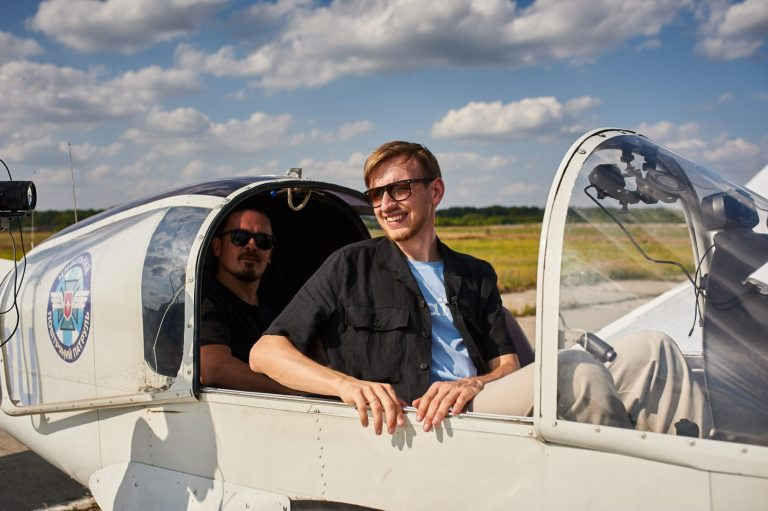
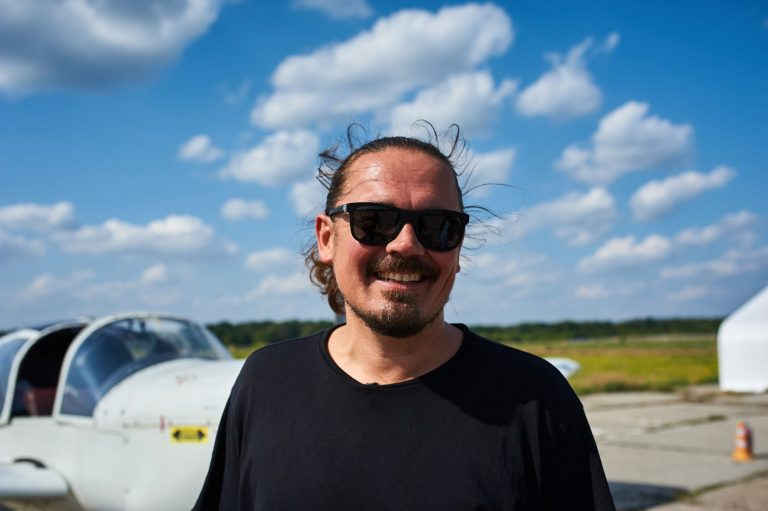
slideshow
— A lot of talented bands are originally from Kharkiv. Is that still the case?
— Something is definitely going on here, but you need to keep your finger on the pulse. However, if something launches from Kharkiv, it’s a bombshell drop. Nobody knew about TNMK. And then we just exploded. Just like a whole bunch of other Kharkiv bands. Kharkiv can be very diverse — just think of TNMK, 5’nizza, Kurhan & Agregat, Zhadan & The Dogs.
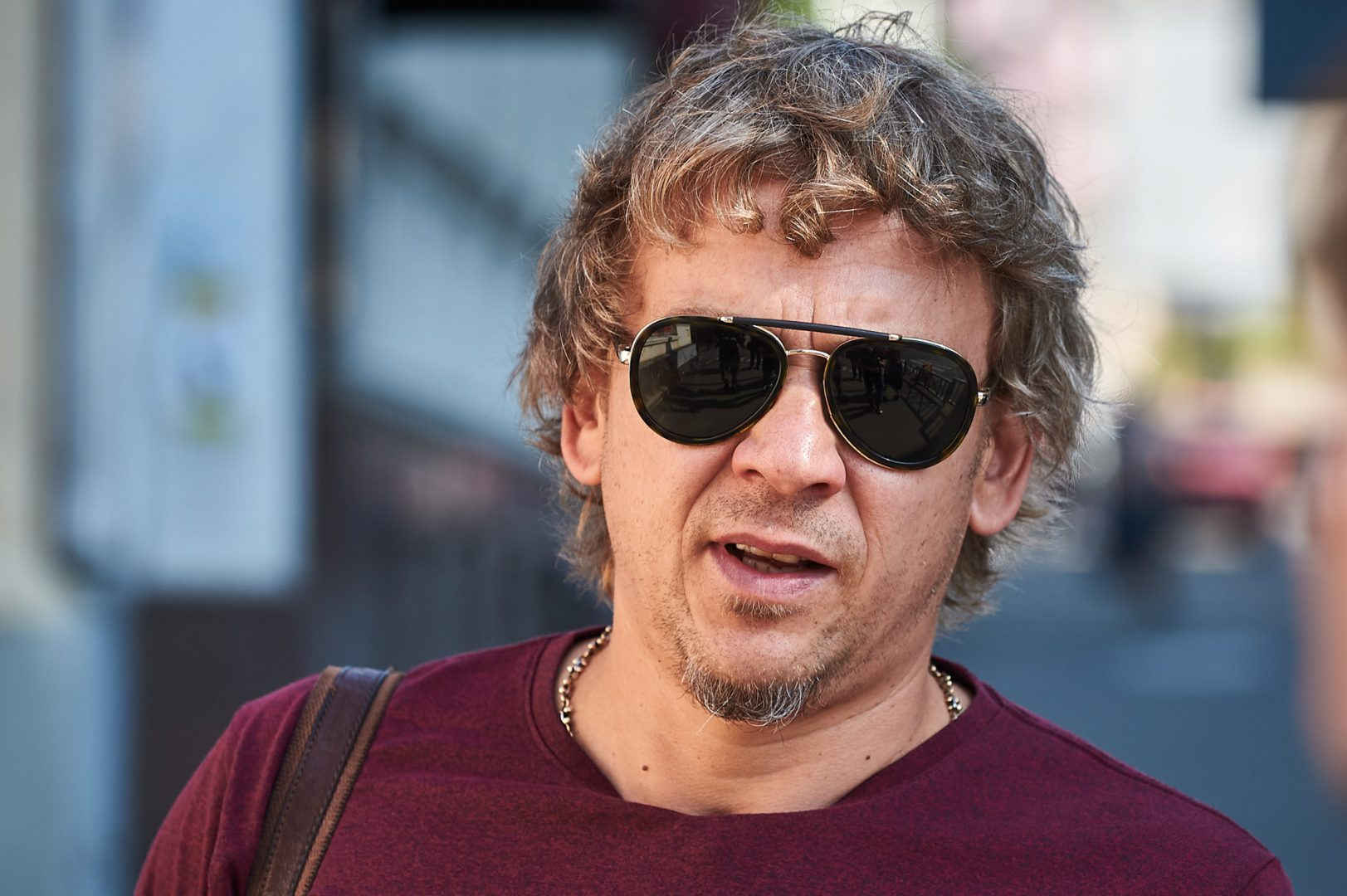
Fozzy
— Does Kharkiv influence people who live here?
— We often say you can take a person out of Kharkiv, but you can’t take Kharkiv out of a person. Kharkiv is part of us for good, kind of like an inner chaos. This city is changing, but not as fast as we’d like it to. But it is changing. Maybe we’re an example of how citizens of the Ukrainian Soviet Socialist Republic are gradually turning into citizens of Ukraine.
— Did you meet Fahot when you were training to be a croupier in a casino?
— That’s right, in the Triple 7 Casino. We met there. The owner of the casino, San Sanych Hora, used to call him ‘Fahot’ (‘Bassoon’). When I found out that he actually played the bassoon in the band Kazma-Kazma, I was totally astounded. Other bands sounded very indie-indie, like Alfons de Monfrua and Kazma-Kazma. Back then, the Kharkiv audience knew HPD, Raznye Liudi (‘Different People’), trashy Soviet bands, a kind of Russian rock. Parallel to all that, there was a smarter scene, full of music school alumni. They played really interesting music that was nothing like Soviet rock.
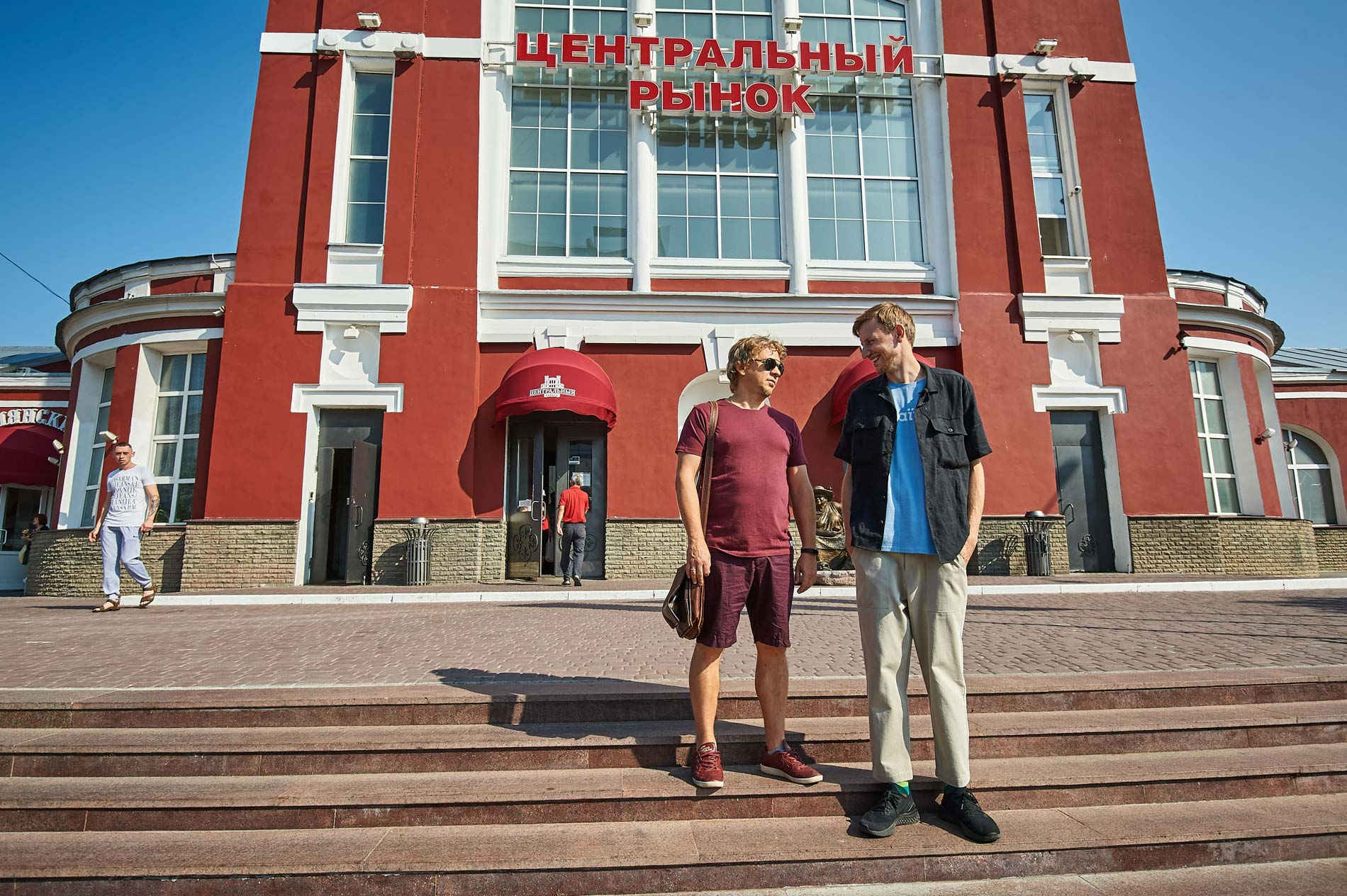
— Your big breakthrough was at the Chervona Ruta festival in May 1997. Do you think you would have taken part in the festival if it had happened in a different city?
— If it hadn’t been for Chervona Ruta, I don’t think we would ever have existed as a band. It happened here (in the Opera House — ed.) and lasted for 10 days. The awards ceremony was on the last day. 16 or 17 years later, we also played our first Sympho-hip-hop concert — our big comeback — in the same hall. The place has a Soviet feel to it. So after that, we decided to perform in the Shevchenko Theatre — it’s more old-school and it sounds that way too. It has vibes like a real theatre, unlike the Opera House, where you feel like you’re attending the 27th Communist Party Congress.
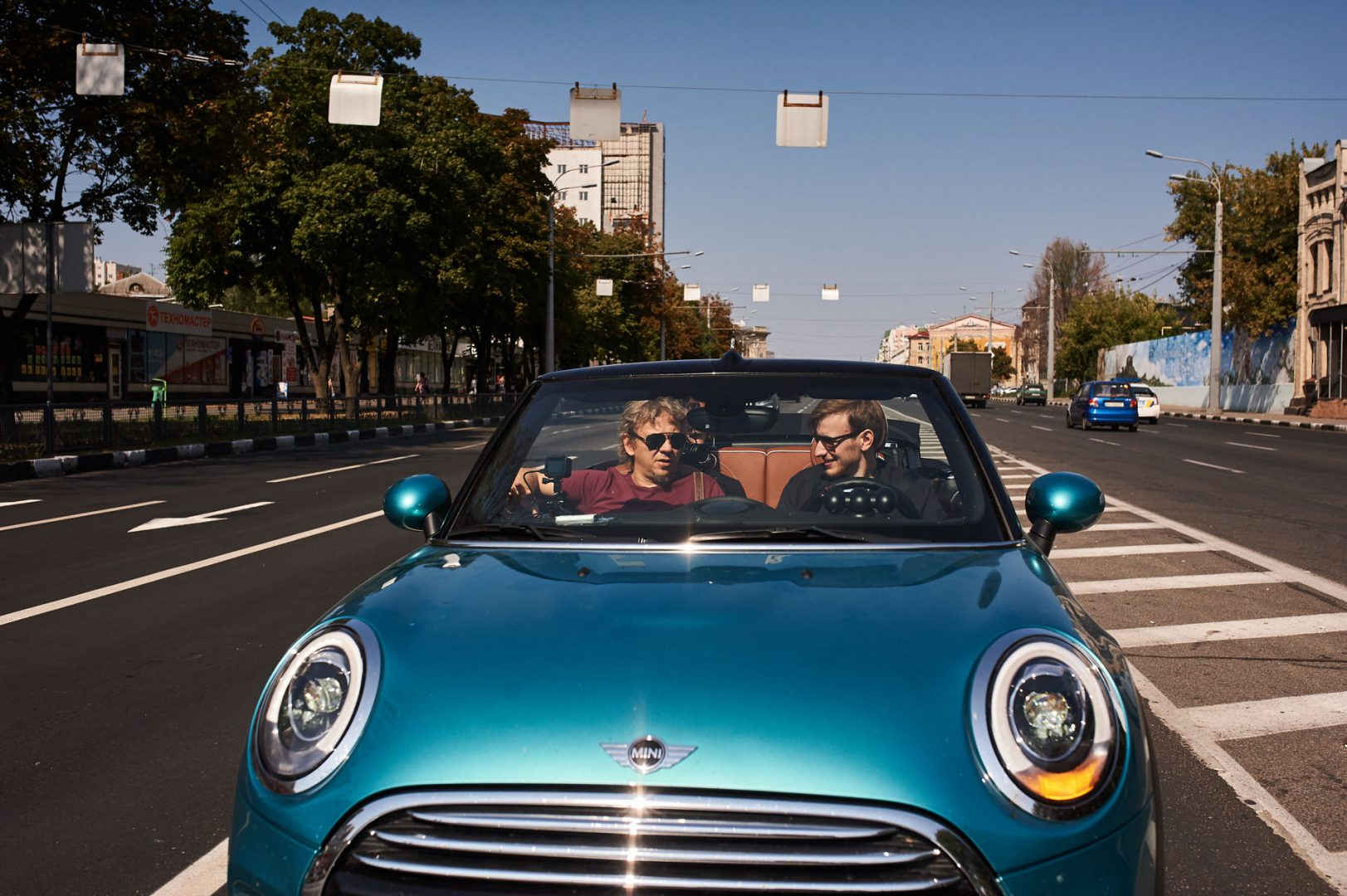
— There are so many words that are specific to certain regions of Ukraine. Does Kharkiv have any words or phrases like that?
— One of the most popular Kharkiv words is trempel (a clothes hanger — ed.). There was this factory owned by a German guy, I’ve known it since childhood. Everyone knows it. People know this word in all the regions surrounding Kharkiv. In Donetsk, people know what a trempel is, and also in Bilhorod, in Sumy, in Poltava. Other regions don’t know this word. They use other words for it. We had a photoshoot recently, and we told the stylist to put the clothes on the trempel, and they had no idea what we were talking about. That’s how we understand they aren’t from around here.
— What’s the difference between calling someone a rakli and a siavka?
— Rakli means a thief. Siavka means a hooligan, so a rakli is a siavka who’s stolen something. There was a patron of the technical college, his name was St. Irakli or something like that. Here, along the river (Blahovishchenskyi bazaar — ed.) there were market stalls, and among them, old ladies selling bilyashi (fried dough pastries with a meat filling — ed.). Whenever the bell rang for a break between lessons, the old ladies started shouting “the rakli are coming!” The name Irakli was too long for them to pronounce, so they shortened it to rakli. They would cover their bilyash stalls with a cloth so that the students wouldn’t steal them. Because there was no way that these old women would be able to chase them down. So that’s how the word rakli came into being. You can use this word for anyone you’re suspicious of — the authorities, your enemies, your neighbours. Rakli is a genuinely Kharkiv word.
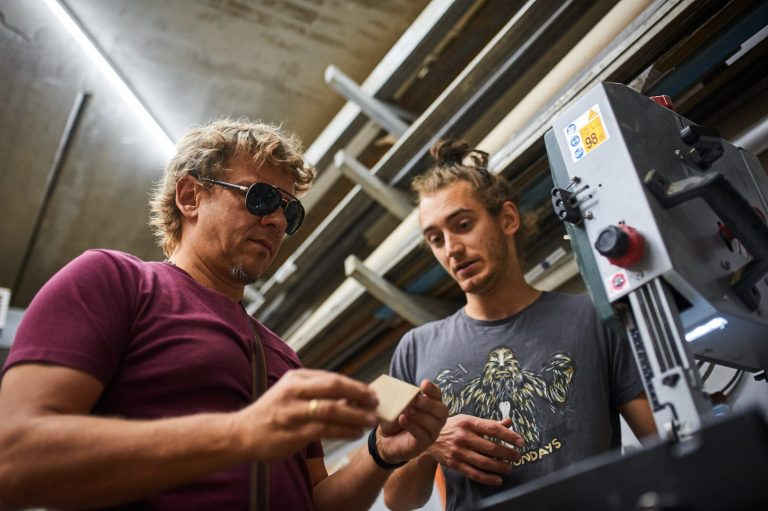
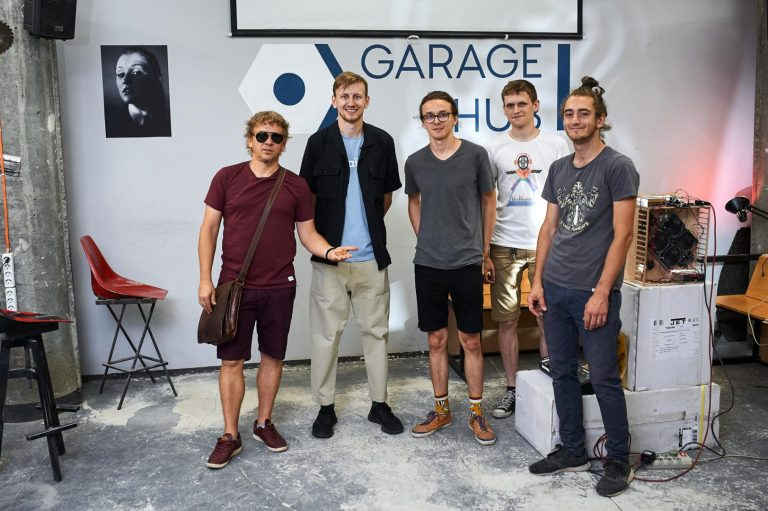
slideshow
— Do you remember when you realised it was time to move to Kyiv?
— For people from Kharkiv, there have always been two ways: either you move to Moscow or, as people started doing later, to Kyiv. Nobody ever saw Kyiv as a serious prospect. Brilliant people and brilliant projects were always oriented towards Moscow. Many people don’t get why Kharkiv is so un-Ukrainian. To understand it, you need to go back to wartime, to the Holodomor, and remember that Kharkiv region lost the highest percentage of its population, and people were brought in from Voronezh and Kursk. So people felt more connected to those cities than to anything Ukrainian. It’s important to understand this when you’re talking about Kharkiv.
— These days you live in Kyiv — do you have any habits that have stayed with you from Kharkiv?
— I don’t like to go to the supermarket for my groceries in Kyiv. I prefer the farmers’ market. I constantly catch myself switching to “Kharkiv language” when I talk to people there. And then I feel like I’m in a time machine.
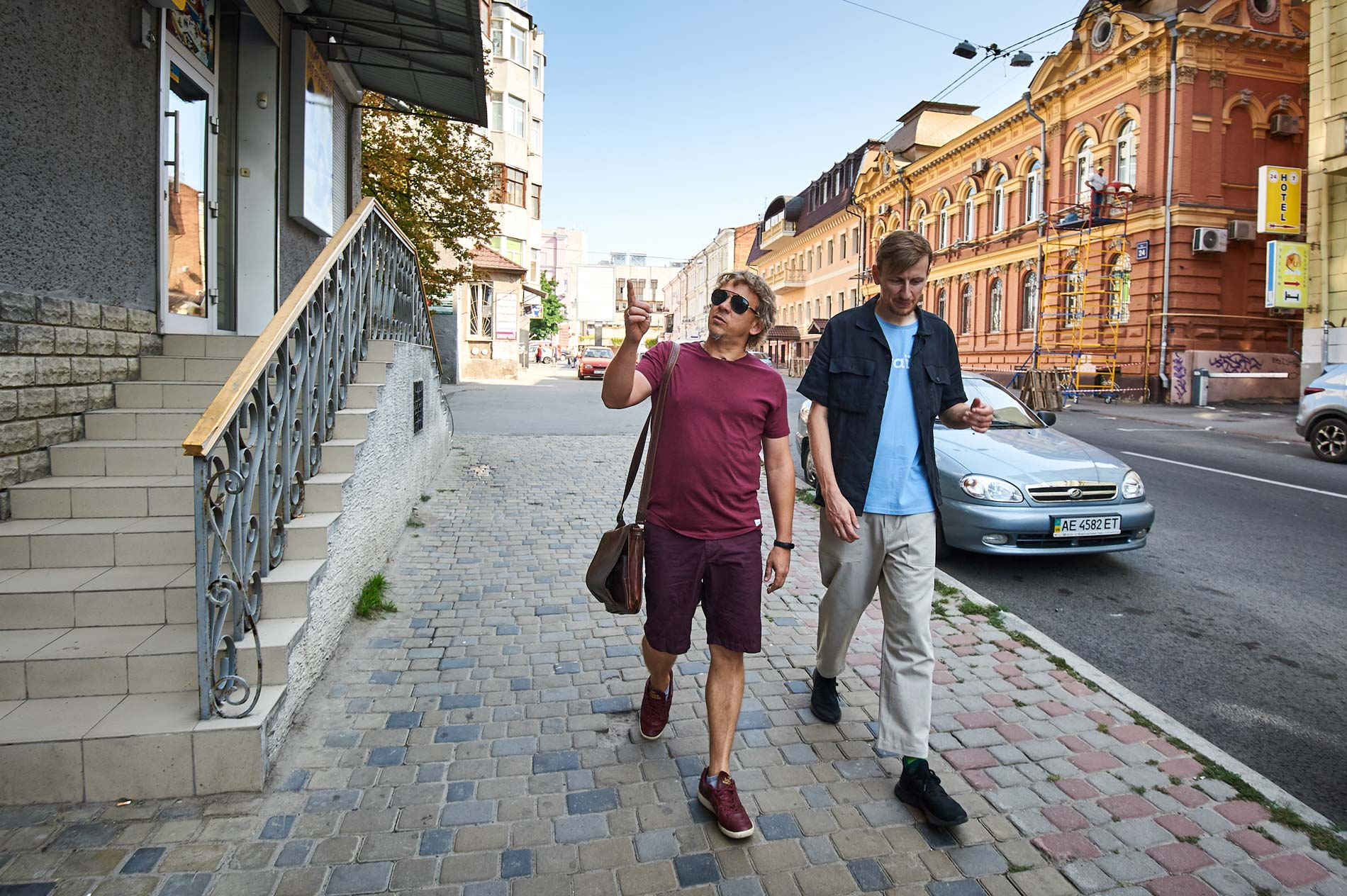
— You used to sell things at the market when you were a student, right?
— You don’t sell things at the market. You stand at the market. It’s another Kharkiv expression: “to stand at the market”.
— What do you remember from the days when you used to “stand at the market”?
— When we moved to Kyiv, we learned that business only gets going at 10 am, while in Kharkiv, everyone’s already packed up and gone home by 9 am. We always wondered what was wrong with Kyiv. We were walking from the train station and couldn’t buy any food because there was no market, the Kyivans were still sleeping. Anyway, in Kharkiv, when I was working at Moskovskyi market, I got the chance to buy a batch of children’s socks with camels on. So we got there at 7 am and the saleswomen on their way to work bought all the socks from us before the market even opened. They all bought our cute socks with camels for their grandchildren. At 9 am, Dilia (Eduard Prystupa, musician — ed.), Kotia (Kostiantyn Zhuikov, musician — ed.) and I were triumphantly walking away from the market because we’d sold everything. It was simply our blaze of glory, I’ll never forget it. There’s nothing that compares to the feeling when you’ve sold all your wares at the market by 9 am.
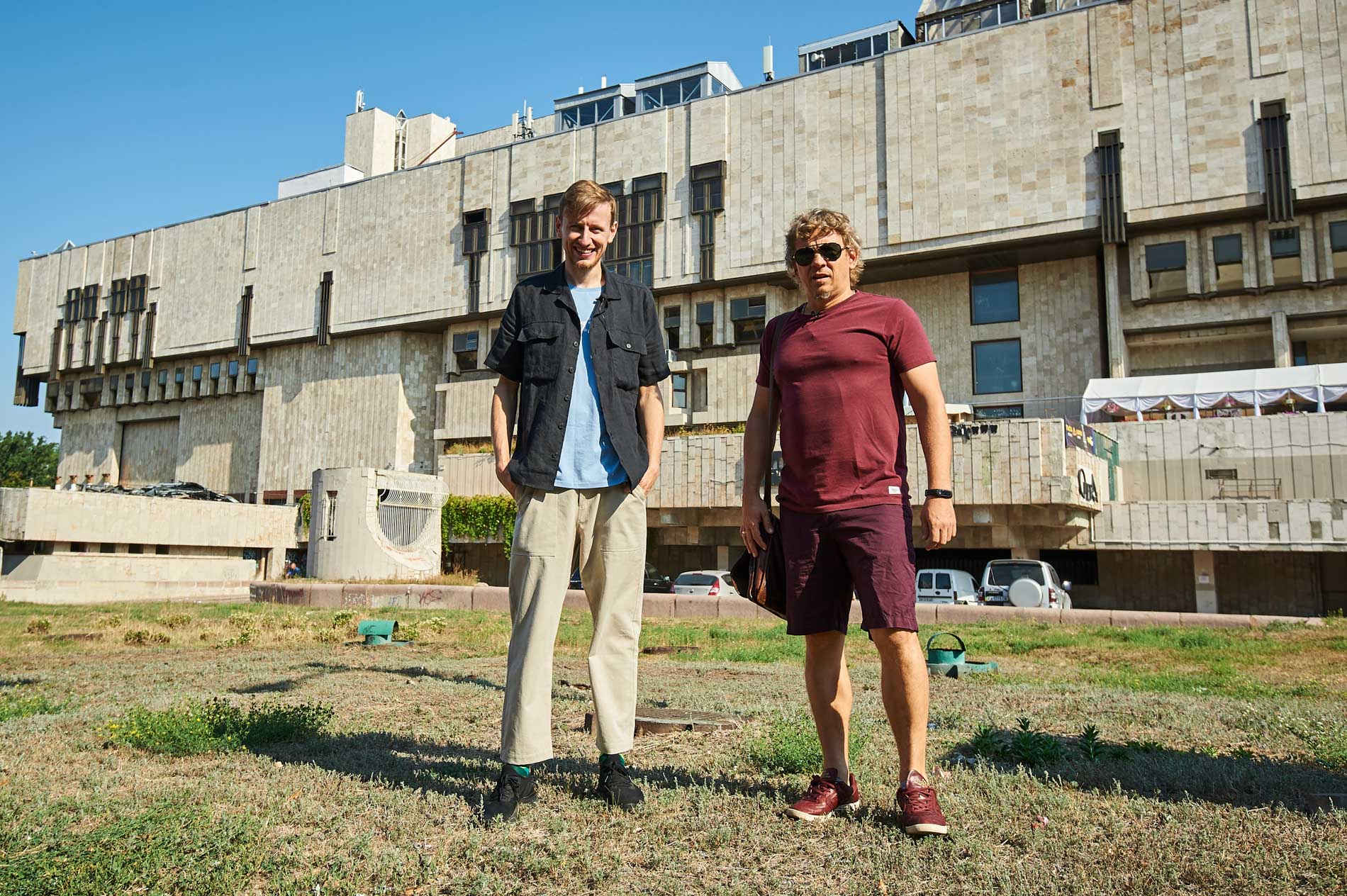
— You had a side-project, MetaMoreFozzey. It was quite successful.
— Then I got tired of it. I decided to change my hobby, I started writing books. Now I want to change it again and start writing TV shows instead of books. It’s not interesting to make love to life the same way all the time.
— Is football one of those hobbies?
— No, football is my main hobby! I was at the stadium in Kharkiv when Blokhin (star striker for Dynamo Kyiv and the USSR — ed.) scored his 200th goal. Wait, it wasn’t his 200th goal, but his 300th. My relatives lived next to the Metalist stadium. There’s a street named after my great-uncle Khramov, who was a Hero of the Soviet Union. He was a jet aircraft pilot; he used to fly over Red Square in Moscow. I remember the sports journalist Artem Frankov wrote an article in “Football” magazine about how some Ukrainian place names were total rubbish. He assumed that Khramova Street was named after a temple (khram is the Ukrainian word for temple — ed.), but there were never any temples on Khramova Street! So I had to text him: “Cross-bar! You failed! The street is named after my great-uncle.” So he apologized. In the next issue of the magazine, he wrote: “Khramova Street isn’t derived from the word khram, it’s named after Mykola Khramov.”
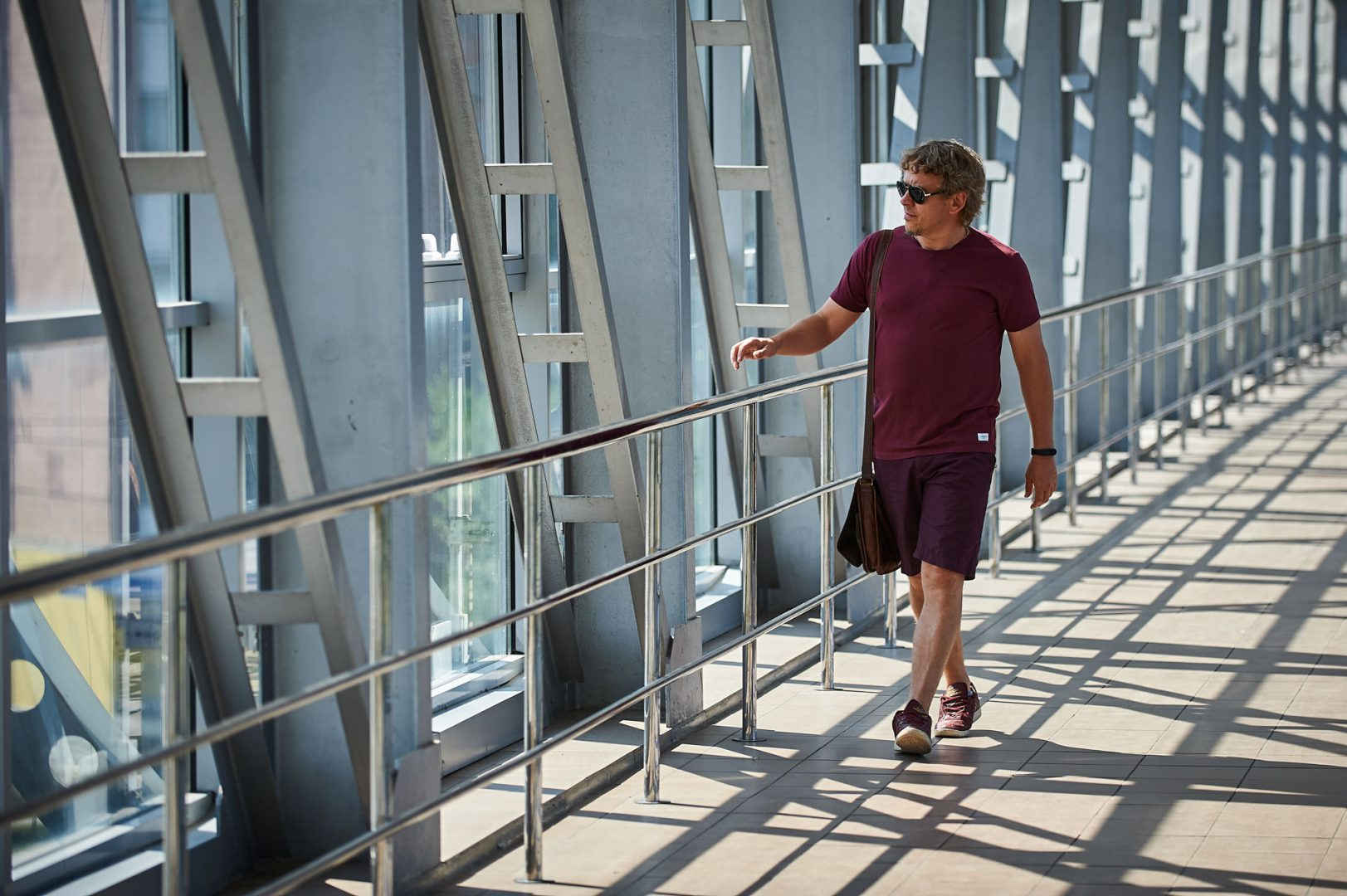
— In your opinion, why did Kharkiv turn into a kind of mothball in certain circles, politically speaking?
— My great-uncle, Mykola Khramov, told me that in the 1930s all the signs were written in Ukrainian — on shop fronts, and so on. Ukrainian used to be widely spoken; later on, you could hear Ukrainian being spoken only at the farmers’ markets, where people from villages sold groceries. At the moment, there seems to be a reversal underway between ‘high’ and ‘low’ forms of language. Russian, with some typical Kharkiv features, used to be considered the ‘high’ language, and Ukrainian was considered ‘low’. Now Ukrainian is becoming the language of culture and education, and we are witnessing the reversal happening again, but this time the Russian language is becoming the ‘low’ language. So if you want to succeed, to make it in politics, or to be financially successful, you need to speak two languages: English and Ukrainian. I’m going to say something terrible, that a lot of people won’t accept: if you want to implement the Ukrainisation of eastern Ukraine, you have to do it using the Russian language. Because you don’t need to target those who speak Ukrainian — they are already on our side. It’s scary to make changes and risk losing your foundations. Still, Kharkiv needs to radiate confidence. It’s a defence mechanism.

